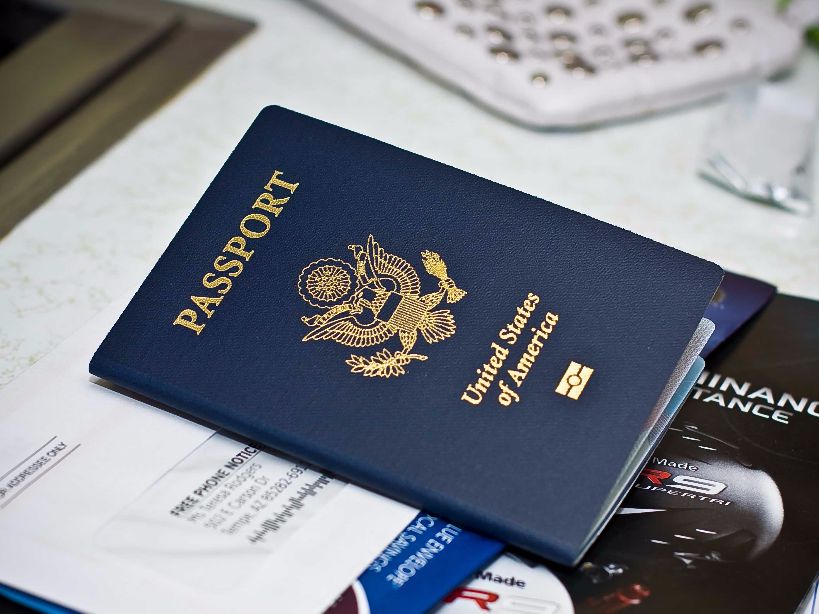How Long Can I Stay In Canada Without A Visa?
Canada, known for its breathtaking landscapes, diverse culture, and vibrant cities, is a popular destination for tourists, students, and professionals alike. However, before planning your trip to Canada, it’s essential to understand the visa requirements and how long you can stay in the country without a visa. This article aims to provide comprehensive information on the duration of stay for visitors to Canada without a visa, as well as the various factors that may affect your eligibility.
Visitor Visa vs. Visa-Exempt Status
Firstly, it’s crucial to differentiate between a visitor visa and visa-exempt status. A visitor visa, also known as a Temporary Resident Visa (TRV), is an official document issued by Canadian authorities that allows foreign nationals to enter Canada for a specific period, usually up to six months. On the other hand, visa-exempt status refers to citizens of certain countries who are not required to obtain a visa before traveling to Canada for short visits. Instead, they can enter Canada with an Electronic Travel Authorization (eTA) or simply with their passport, depending on their nationality.
Duration of Stay for Visa-Exempt Travelers
For citizens of countries that are exempt from visa requirements, the duration of stay in Canada typically depends on the immigration officer’s discretion at the port of entry. In most cases, visitors are granted an initial stay of up to six months. However, the immigration officer has the authority to shorten or extend this period based on various factors, including the purpose of the visit, ties to the home country, financial resources, and overall admissibility.
Factors Affecting Duration of Stay
Several factors can influence the duration of stay granted to visa-exempt travelers in Canada:
- Purpose of Visit: The primary purpose of your visit to Canada plays a significant role in determining the duration of stay. If you’re visiting for tourism, family visits, or attending a short-term business meeting, you’re more likely to be granted a standard six-month stay. However, if you’re entering Canada for a specific event or conference with a fixed duration, your stay might be limited accordingly.
- Ties to Home Country: Immigration officers assess whether visitors have strong ties to their home country, such as family, employment, or property ownership. Strong ties indicate a higher likelihood of returning home after the authorized stay in Canada. Conversely, individuals with weak ties or no compelling reason to return home may be granted a shorter duration of stay or denied entry altogether.
- Financial Resources: Adequate financial resources are essential to support your stay in Canada without engaging in unauthorized work or seeking public assistance. Immigration officers may inquire about your financial situation and may request proof of sufficient funds to cover your expenses during your visit, including accommodation, transportation, and living costs.
- Previous Immigration History: Your past compliance with visa regulations and immigration laws, both in Canada and other countries, can influence the duration of stay granted by immigration authorities. Individuals with a history of overstaying visas or immigration violations may face more scrutiny and could be granted a shorter stay or denied entry.
- Health and Security Concerns: Immigration officers also consider health and security factors when determining the admissibility of visitors to Canada. If you pose a health risk or have a criminal record or security concerns, your entry may be denied, or additional restrictions may be imposed on your duration of stay.
Extending Your Stay in Canada
If you’re already in Canada as a visa-exempt visitor and wish to extend your stay beyond the authorized period, you have options to apply for an extension. The application process for extending your stay varies depending on your current immigration status and the purpose of your stay. You must submit your extension application before your authorized stay expires to maintain legal status in Canada. Failure to do so could result in deportation or future immigration consequences.
FAQs
Can I visit Canada without a visa? Answer?
Yes, citizens of certain countries are exempt from obtaining a visa to enter Canada for short visits. Instead, they can enter with an Electronic Travel Authorization (eTA) or simply with their passport, depending on their nationality.
How long can I stay in Canada without a visa?
Visa-exempt travelers are typically granted an initial stay of up to six months when visiting Canada. However, the immigration officer at the port of entry has the discretion to adjust this period based on various factors, including the purpose of the visit and ties to the home country.
Can I extend my stay in Canada if I enter without a visa? Answer?
Yes, if you’re already in Canada as a visa-exempt visitor and wish to extend your stay beyond the authorized period, you can apply for an extension. It’s important to submit your extension application before your authorized stay expires to maintain legal status in Canada.
What factors can affect the duration of my stay in Canada without a visa?
Several factors can influence the duration of stay granted to visa-exempt travelers in Canada, including the purpose of the visit, ties to the home country, financial resources, previous immigration history, and health and security concerns.
What happens if I overstay my authorized period in Canada without a visa?
Overstaying your authorized period in Canada without a visa can have serious consequences, including deportation, future immigration restrictions, and difficulties obtaining visas for future visits. It’s crucial to abide by Canadian immigration laws and regulations and to apply for extensions if necessary to avoid overstaying your welcome.
Conclusion
In summary, the duration of stay for visitors to Canada without a visa depends on various factors, including the purpose of the visit, ties to the home country, financial resources, and overall admissibility. While visa-exempt travelers are typically granted an initial stay of up to six months, immigration officers have the discretion to adjust this period based on individual circumstances. It’s essential to abide by Canadian immigration laws and regulations and to plan your visit accordingly to ensure a smooth and enjoyable experience in the Great White North.








